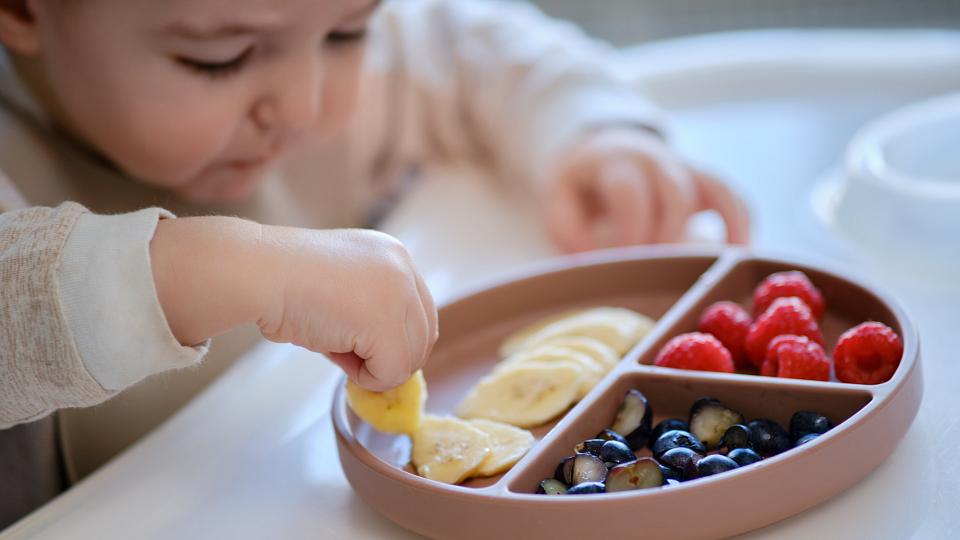
How to Avoid Food Policing and Weight Shaming: A Tutorial for Parents
While attempting to teach the importance of a well-balanced diet, sometimes even well-intentioned parents might accidentally encroach on food policing and weight shaming.
“A lot of times people focus too much on weight and not on the health behaviors that the kids are actively doing,” says Kasie Gloschat, MS, CD, RD, registered dietitian at University of Utah Health.
Here are a few tips to help you safely talk to your kids about food:
1. Avoid labeling food as "good" or "bad"
It is true that some foods provide health benefits, while others do not. But the language we use around food is powerful. Kids can feel as if they are morally “bad” when selecting less nourishing food.
“I have seen food hiding within a lot of my patients because they feel shame for eating those foods that are labeled as bad,” Gloschat says. “This makes us focus too much on what we can and can’t have instead of moderation within all foods.”
2. Allow all foods in moderation
If your child is binging problematic foods, start a non-judgmental conversation. “What is it about this food that you really like?” Gloschat offers. “And then find some alternative foods that are healthier that you can substitute throughout the week.”
We all need a little wiggle room—especially kids. While it is best not to keep an unlimited supply of fried foods, baked goods, or soda in the house, having an appropriate portion of an indulgence periodically can actually help kids learn the art of self-regulation.
3. Teach kids how to identify appropriate portion sizes
“One thing that’s worked really well for my patients is focusing on hunger and fullness cues,” Gloschat says. “It takes it more toward intuitive eating and body awareness.”
The “finish your plate” method of prior generations betrayed body autonomy. So instead of mandating portions, engage your kids in open-ended questions. Do you feel growling signals? Do you feel comfortably full right now? Do you feel like you’re slightly uncomfortable? Teach kids how to assess how food has impacted their stomach.
4. Serve a variety of foods
One of the best ways to expand children’s palates is to offer a variety of healthful foods, prepared in a variety of ways. “Variety in a children’s diet will allow them to adapt to different flavor profiles,” Gloschat explains. Over time, they will find an assortment of nourishing foods they enjoy eating and will be more likely to accept new flavors in the future.
5. Avoid weight talk
Unfortunately, modern beauty standards can leave kids feeling insecure. Kids will likely be exposed to negative weight talk at school, online, and in the media. Avoid negative weight talk at home.
“Weight is meant to be diverse within different bodies, but weight doesn’t determine health,” Gloshcat clarifies. So instead of the scale, focus on encouraging a healthy lifestyle, balanced choices, and self-affirming talk that manifests body positivity.
6. Model healthy habits
Kids pick up on your habits, so regularly model balanced eating and movement at home. Also be sure to avoid pointing out insecurities with your own appearance. Body affirmation can be witnessed and emulated.
Make your kid a part of the meal-planning process. “Take your kid grocery shopping with you,” Gloschat says. “See if there are any healthy foods they’re interested in.” Give your child the tools to participate in their diet. Help them feel the joy of taking care of their body!
7. MAKE HEALTHY EATING FUN
Make healthy eating a fun activity and avoid using less healthy foods as a reward. “If we are trying to get our kid to eat healthy, but then we’re rewarding them with ice cream or cake or doughnuts, that makes it really hard to understand what’s being taught,” Gloschat explains. Buy a new game. Go to the park. Find something engaging to do that doesn’t undermine your healthy messages.
Overall, incremental goal setting around food is important for kids to experience the celebration of payoff. “They can track those goals,” Gloschat says. “They can feel success by achieving those goals.” Ultimately, they can develop a sense of empowerment to maintain healthy habits and a balanced diet in their future.
How to Handle Screen Related Temper Issues in Children
Is your child's screen time causing more tantrums? Pediatrician Cindy Gellner, MD, reveals how excessive digital exposure can lead to emotional challenges in kids.






